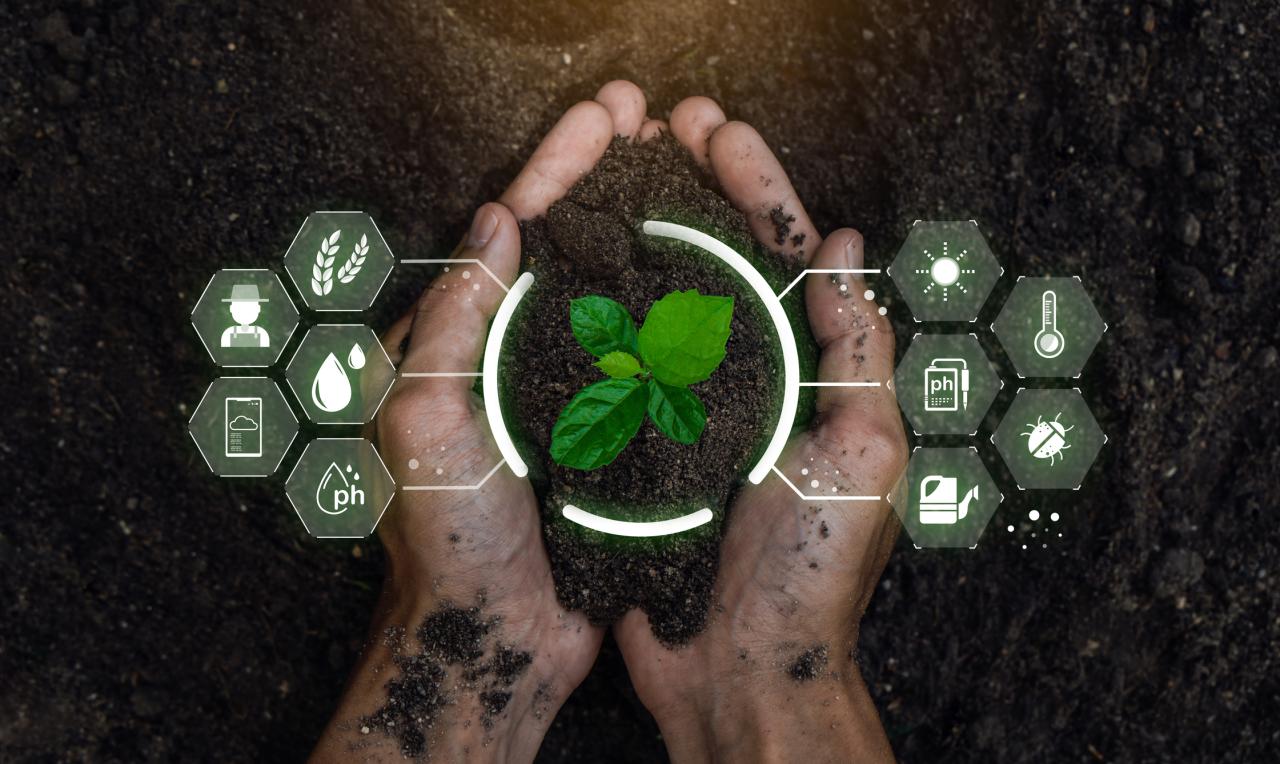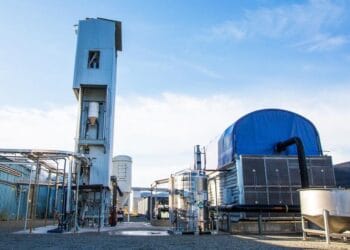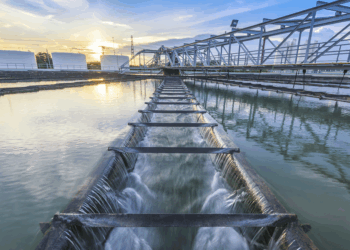In the grand narrative of human progress, few fields resonate with the transformative power of biotechnology. It’s a discipline that operates at the very bedrock of existence, manipulating life’s fundamental components to engineer a future where disease is managed, resources are optimized, and our environmental footprint is minimized.
Biotechnology isn’t merely a scientific pursuit; it’s an architectural endeavor, building the very scaffolding for a healthier, more sustainable human experience. This deep dive will explore how biotech is already writing the next chapters of human thriving, from healing the body at its cellular core to reshaping our planet’s ecological balance.
Biotech’s Evolution
While the term “biotech” feels decidedly modern, the concept of harnessing biological processes for human benefit is as old as civilization itself. Consider the ancient art of fermentation, transforming grapes into wine or grains into bread – these were rudimentary biotechnologies. The real leap, however, arrived with the elucidation of DNA’s double helix by Watson and Crick in 1953, a discovery that provided the molecular blueprint of life. This seminal moment, followed by the groundbreaking ability to precisely manipulate genetic material through recombinant DNA technology in the 1970s, ignited the modern biotech revolution. It was the transition from observing nature’s processes to actively designing and programming them, opening up avenues previously unimaginable. This period marked a shift from understanding to engineering, giving humanity unprecedented control over biological systems.
The Medical Sides

Perhaps nowhere is biotechnology’s impact more profoundly felt than in the realm of medicine. Biotech firms are at the vanguard, crafting innovative therapies, sophisticated diagnostics, and proactive preventive strategies that are fundamentally altering the paradigm of human health.
Personalized Healing
The dream of precision medicine – bespoke treatments designed for an individual’s unique biological makeup – is rapidly crystallizing into reality, thanks to biotech’s relentless march forward.
Oncology’s Molecular Remake: The fight against cancer is moving beyond broad-spectrum assaults. Genetic profiling of a patient’s tumor now guides oncologists in selecting highly targeted therapies that directly confront the specific genetic anomalies driving the malignancy. This personalized strike not only enhances efficacy but also dramatically reduces the debilitating side effects often associated with conventional chemotherapy.
CRISPR: Editing the Code of Life: The revolutionary CRISPR-Cas9 system has emerged as a biological word processor, capable of precisely “cutting and pasting” DNA sequences. This molecular scalpel offers unparalleled potential to mend genetic flaws responsible for debilitating conditions such as cystic fibrosis, sickle cell anemia, and Huntington’s disease. Though human therapeutic application is still in nascent stages, the promise of eradicating genetic disease is palpable.
Cellular Cavalry: Immunotherapy’s Rise: Therapies like CAR T-cell therapy exemplify the power of cellular engineering. A patient’s own immune cells are harvested, genetically re-programmed to identify and aggressively target cancer cells, and then reintroduced into the body. This highly individualized and potent form of immunotherapy has delivered remarkable, often curative, outcomes in specific blood cancers, signaling a new era of fighting disease from within.
Redefining Diagnostics and Monitoring
Biotechnology has profoundly sharpened our diagnostic capabilities, allowing for earlier detection and more effective health management.
- Liquid Biopsies: These non-invasive tests represent a significant leap forward, detecting minute fragments of cancer DNA or circulating tumor cells in a simple blood sample. This allows for earlier diagnosis, dynamic monitoring of treatment efficacy, and timely detection of recurrence, often long before physical symptoms manifest.
- Smart Biosensors: Miniaturized biosensors are no longer futuristic concepts; they are actively being developed to detect specific biomarkers for a spectrum of diseases in real-time. Imagine wearable patches that continuously monitor vital health indicators or devices providing rapid, accurate diagnoses at home, moving healthcare beyond the clinic walls.
- Pharmacogenomics: This burgeoning field investigates the intricate dance between an individual’s genes and their response to medications. By decoding a patient’s genetic profile, clinicians can preemptively select drugs that promise higher efficacy and minimal adverse reactions, largely eliminating the costly and time-consuming trial-and-error approach to prescribing.
Vaccine Innovation
The recent global health crises starkly illuminated biotechnology’s indispensable role in safeguarding public health against infectious threats.
- mRNA Vaccines: The unprecedented speed of mRNA vaccine development for recent pandemics showcased biotech’s remarkable agility. These vaccines leverage genetic instructions to prompt human cells to produce harmless viral proteins, effectively “teaching” the immune system to recognize and neutralize the pathogen. This versatile platform holds immense promise for developing rapid responses to a multitude of other infectious diseases and even certain cancers.
- Tackling Antimicrobial Resistance (AMR): As the shadow of antibiotic resistance lengthens, biotech is exploring radical new avenues. This includes the resurgence of phage therapy (using viruses specifically designed to attack bacteria), the discovery of entirely new classes of antibiotics, and immunotherapies aimed at bolstering the body’s own defenses against drug-resistant superbugs.
- Rapid Pathogen Forensics: Cutting-edge sequencing technologies and molecular diagnostics enable swift and precise identification of infectious agents. This capability is paramount for effective outbreak containment, targeted treatment, and ultimately, ensuring global health security by facilitating rapid responses to newly emerging threats.
Agriculture and Environment Reinvented

Beyond human health, biotechnology is proving indispensable in tackling the monumental challenges of global food security and fostering truly sustainable agricultural practices.
Engineered Resilience
Genetically modified (GM) crops, despite ongoing debates, offer tangible benefits in boosting yields, enriching nutritional content, and enhancing resilience against environmental stressors.
- Yield Optimization: Genetic engineering introduces traits that fortify crops against destructive pests, debilitating diseases, and harsh climatic conditions like prolonged drought or excessive salinity. This translates directly to higher, more consistent yields, underpinning a more reliable global food supply.
- Nutritional Fortification: “Golden Rice” stands as a poignant example, engineered to synthesize beta-carotene, a vital precursor to Vitamin A. This biotech innovation directly addresses vitamin deficiencies prevalent in vulnerable populations worldwide, particularly in regions where access to diverse diets is limited.
- Minimizing Chemical Footprints: Crops inherently resistant to specific pests can dramatically reduce the reliance on chemical pesticides. This not only lightens the environmental burden but also contributes to safer food production systems and significantly lowers operational costs for farmers.
The Green Biotech Revolution
Biotechnology is actively shaping farming practices towards a more ecological approach.
- Biofertilizers and Biopesticides: These naturally derived solutions harness beneficial microorganisms to enhance soil fertility and control agricultural pests. They offer potent, sustainable alternatives to synthetic chemical inputs, promoting healthier ecosystems and crop growth.
- Livestock Enhancement: Through precise genetic selection and engineering, animal health, growth efficiency, and disease resistance can be significantly improved. This leads to more sustainable and ethical livestock production, maximizing resource utilization.
- Precision Agriculture’s Biotech Edge: The seamless integration of genomic insights with advanced sensor technologies empowers farmers to optimize resource allocation – water, nutrients, and even pest management – with unprecedented accuracy, leading to minimal waste and maximal yield.
Industrial Renewal and Environmental Stewardship
Biotechnology’s influence permeates industrial processes and environmental protection, offering innovative and sustainable solutions to some of our planet’s most pressing issues.
Bioremediation
This powerful technique leverages the metabolic prowess of microorganisms to neutralize contaminants in polluted environments.
- Oil Spill Mitigation: Specific bacterial strains can be naturally occurring or genetically engineered to efficiently degrade hydrocarbons found in oil spills, accelerating the recovery of affected marine and terrestrial ecosystems.
- Wastewater Purification: Microorganisms are the unsung heroes in advanced wastewater treatment facilities, diligently breaking down pollutants and transforming contaminated water into cleaner, safer effluent.
- Plastic’s Biological Demise: Groundbreaking research is unearthing and engineering enzymes and microbial communities capable of biodegrading plastics. This offers a profoundly hopeful pathway to mitigating the global plastic waste crisis, fostering a truly circular economy for materials once deemed indestructible.
Bio-Industrial Transformation
The urgent global imperative to find sustainable alternatives to fossil fuels and traditional materials is a fertile ground for biotechnological innovation.
- Advanced Biofuels: Microorganisms are being harnessed as efficient biocatalysts, converting diverse biomass sources (plant waste, algae) into ethanol, biodiesel, and other sustainable fuels. This significantly reduces our dependency on finite fossil resources and curbs greenhouse gas emissions.
- Biodegradable Materials: The development of bioplastics, derived from renewable biomass and designed to be compostable and biodegradable, offers a compelling eco-friendly alternative to petroleum-based plastics, addressing a monumental pollution challenge.
- Enzyme-Driven Manufacturing: Enzymes, nature’s highly efficient and specific biological catalysts, are increasingly adopted across a myriad of industrial sectors. From enhancing the performance of laundry detergents to streamlining textile processing, their use reduces energy consumption and minimizes the reliance on harsh chemical agents.
Conclusion
Biotechnology is far more than a specialized scientific discipline; it represents a fundamental shift in humanity’s interaction with the natural world. It is rapidly reshaping our health, our environment, and our industrial practices. From extending the healthy lifespan of individuals to ensuring global food security, and from actively cleaning our planet to forging truly sustainable industries, biotech’s impact is sweeping and transformative.
While the journey is not without its ethical complexities and regulatory demands, the accelerating pace of innovation suggests that these challenges are surmountable through concerted global collaboration, rigorous scientific inquiry, and thoughtful, adaptive policy-making. We are undoubtedly living through a biological revolution, one where our growing mastery over life’s molecular building blocks is providing unprecedented tools to confront and overcome the most formidable challenges facing humanity. The promise of biotechnology to deliver a healthier, more sustainable, and ultimately, more resilient future is not a distant dream, but a dynamic reality unfolding before our very eyes.













